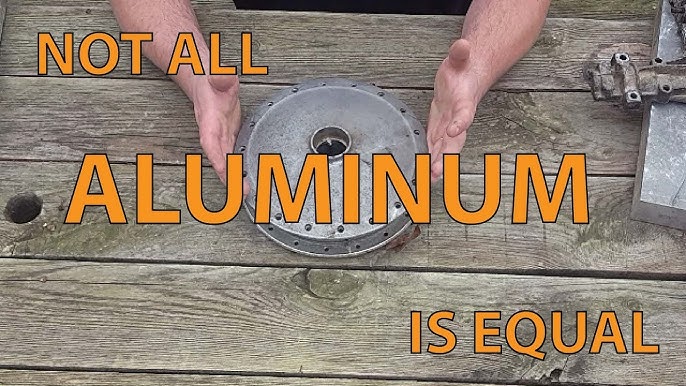The Basic Principles Of Stahl Specialty Company
The Basic Principles Of Stahl Specialty Company
Blog Article
Stahl Specialty Company Can Be Fun For Everyone
Table of ContentsThe Of Stahl Specialty CompanyGetting The Stahl Specialty Company To WorkThe Single Strategy To Use For Stahl Specialty CompanyThe Main Principles Of Stahl Specialty Company The Ultimate Guide To Stahl Specialty Company
The subtle difference depends on the chemical material. Chemical Contrast of Cast Aluminum Alloys Silicon advertises castability by minimizing the alloy's melting temperature level and boosting fluidness during spreading. It plays a vital function in permitting intricate molds to be filled up accurately. Additionally, silicon contributes to the alloy's toughness and wear resistance, making it valuable in applications where sturdiness is vital, such as automotive parts and engine parts.It likewise boosts the machinability of the alloy, making it simpler to refine right into finished products. In this way, iron contributes to the general workability of aluminum alloys.
Manganese adds to the strength of light weight aluminum alloys and enhances workability. It is generally utilized in wrought light weight aluminum items like sheets, extrusions, and profiles. The visibility of manganese aids in the alloy's formability and resistance to breaking throughout manufacture processes. Magnesium is a lightweight component that offers toughness and impact resistance to light weight aluminum alloys.
Zinc improves the castability of light weight aluminum alloys and assists regulate the solidification process throughout casting. It enhances the alloy's toughness and solidity.
The Best Guide To Stahl Specialty Company
Due to the fact that aluminum-silicon alloys have excellent casting residential or commercial properties, high gas properties, simple procedures, and excellent deterioration resistance, aluminum-silicon alloys are most commonly utilized in the die-casting sector at home and abroad. At the exact same time, aluminum-silicon alloys are also relatively very early and commonly recognized alloys created and used in die-casting. After continual research study and renovation, the majority of the present worldwide mainstream aluminum-silicon alloys have been completed and are absolutely nothing more than A356, A360, A380, ADC12, B390, and A413.
The main thermal conductivity, tensile toughness, return toughness, and elongation vary. Select appropriate raw products according to the performance of the target product created. Among the above alloys, A356 has the highest thermal conductivity, and A380 and ADC12 have the most affordable. The tensile limitation is the contrary. A360 has the very best return toughness and the highest elongation rate.

The Ultimate Guide To Stahl Specialty Company
In precision spreading, 6063 is well-suited for applications where detailed geometries and premium surface coatings are vital. Examples consist of telecommunication units, where the alloy's premium formability permits streamlined and cosmetically pleasing designs while preserving structural stability. Similarly, in the Lights Solutions sector, precision-cast 6063 elements produce classy and reliable lights components that call for intricate shapes and great thermal performance.
(https://my.omsystem.com/members/stahlspecialc)
The A360 displays premium elongation, making it perfect for facility and thin-walled components. In precision spreading applications, A360 is well-suited for industries such as Consumer Electronic Devices, Telecommunication, and Power Devices.

In accuracy casting, light weight aluminum 413 beams in the Customer Electronics and Power Devices industries. This alloy's remarkable rust resistance makes it an exceptional option for exterior applications, guaranteeing resilient, sturdy items in the mentioned industries.
All about Stahl Specialty Company
The light weight aluminum alloy you choose will considerably affect both the spreading process and the properties of the final item. Since of this, you more helpful hints need to make your choice thoroughly and take an enlightened method.
Determining the most appropriate aluminum alloy for your application will imply weighing a vast selection of features. These comparative alloy characteristics comply with the North American Die Casting Organization's guidelines, and we've split them into 2 classifications. Foundries in Missouri. The very first category addresses alloy attributes that influence the production process. The 2nd covers qualities affecting the properties of the final product.
The alloy you select for die casting straight affects numerous elements of the spreading process, like exactly how simple the alloy is to deal with and if it is prone to casting problems. Hot cracking, also known as solidification splitting, is a common die spreading issue for light weight aluminum alloys that can lead to interior or surface-level splits or splits.
4 Simple Techniques For Stahl Specialty Company
Specific light weight aluminum alloys are extra vulnerable to warm fracturing than others, and your option ought to consider this. An additional usual issue located in the die spreading of light weight aluminum is pass away soldering, which is when the actors sticks to the die wall surfaces and makes ejection tough. It can damage both the cast and the die, so you ought to seek alloys with high anti-soldering residential properties.
Rust resistance, which is currently a noteworthy feature of light weight aluminum, can vary considerably from alloy to alloy and is a vital characteristic to take into consideration depending on the ecological conditions your product will certainly be revealed to. Use resistance is another residential property generally looked for in light weight aluminum products and can differentiate some alloys.
Report this page